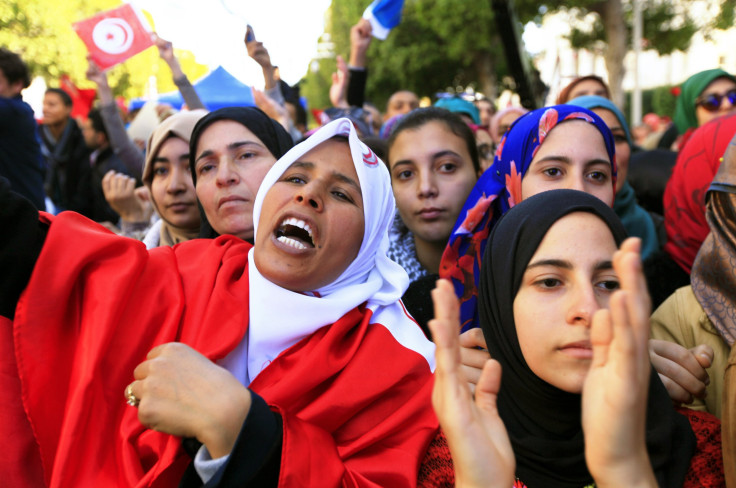Pew Study: Citizens In Developing Countries Say Rich Have Too Much Political Power

Citizens of developing countries see a connection between economic inequality and corrupt politicians, new data show. The Pew Research Center surveyed 38,620 people in 34 developing countries between March and June of last year. The researchers found that a median of 52 percent of people were unhappy with their political system while 64 percent said that people with high incomes have far too much influence.
“Political satisfaction is frequently related to economic attitudes,” the report says. “Countries where the economy mood is negative also have high levels of unhappiness with the political system.”
In Tunisia, for example, 88 percent of respondents said the economic situation was bad, and 70 percent were unhappy with the country’s political system.
While the trend carried in all countries surveyed, in some regions the pattern was more pronounced.
People living in Latin America were most likely to say that rich people held “too much” influence in their political systems, with a median of 74 percent of respondents agreeing with this. It also had a median of 59 percent who were not happy with their current political system. In the region, Colombians were most unhappy with both situations, with 85 percent saying the economy was bad and 75 percent saying they were “dissatisfied” with their current political system. Meanwhile, in Venezuela, just 44 percent of people said the rich were too powerful though 55 percent still think politics is unfair.
Asia had the lowest median rank of all regions, with just 57 percent of people saying rich people were overly influential. But rates in Bangladesh and Thailand were especially high, with 78 percent and 72 percent of people saying this was the case. China and Vietnam, which the report notes are “two nations still ruled by officially Communist parties,” were the only two countries in the survey to have a majority of respondents say that high-income people have the “right amount” or “not enough” political influence.
In Africa and the Middle East, opinions were mixed. For instance, Senegal, Uganda and Kenya had high rates of people saying the rich had too much power, while just 47 percent of South Africans felt the same way. Meanwhile, 77 percent of Tunisians agreed with this point but just 51 percent of Egyptians did.
Overall, “people who believe inequality is a very big problem are also more likely to express disappointment in their political system,” the report says.
© Copyright IBTimes 2025. All rights reserved.






















